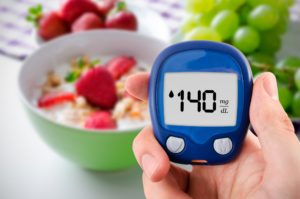 If you need more reasons to try and control blood sugar, here is another: it might affect your memory.
If you need more reasons to try and control blood sugar, here is another: it might affect your memory.
Research indicates that over time, rising blood sugar leads to lower performance in cognitive function and memory. When blood sugar levels get high and remain uncontrolled, it has the potential to damage nerves in the brain, which may increase the risk for dementia.
Advertisement
This might not only affect diabetics, however. Work also exists showing that high blood sugar can impact memory and brain function in non-diabetics. One study, published in the journal Diabetologia, found that memory and executive function declined as blood sugar levels increased in a sample of over 5,000 adults. The study lasted for 10 years using cognitive tests and HbA1c tests to monitor brain function and blood sugar, respectively.
Controlling blood sugar, therefore, might be an important step in protecting memory and brain function in addition to battling or preventing diabetes. Diabetes has long been associated with cognitive decline and memory troubles, but the foundation may be laid before the condition is fully blown.
Limiting intake of high-sugar foods and refined starches is the best way to keep blood sugar in check. High sugar foods and beverages like soda, candy, pastries, and sweet tea can all contribute to diabetes risk and potentially limit memory and decision-making abilities.
If you currently have diabetes, controlling blood sugar could help prevent cognitive decline. There is evidence supporting that a diligent approach to regularly measuring blood sugar and making dietary and lifestyle adjustment to improve glucose metabolism may contribute to a reduced risk for Alzheimer’s or dementia.
Recognizing memory loss can sometimes be difficult; after all, everyone has his or her moments. But if you’re frequently experiencing the following, a doctor’s visit is recommended:
- Inability to recall important life events
- Forgetting things you have just done
- Losing track of where things are in your home
- Confusion with where you’re going or where you are
- Not being able to recall the names of family or close friends
